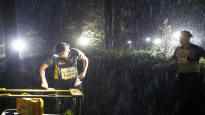Swedish investing in night orienteering, club culture and numbers of enthusiasts are part of the success. According to Janne Salmi, the number of enthusiasts of the sport in Finland should be increased if the Swedes are to succeed.
11:22 • Updated 11:29 AM
This was to be an opportunity for Finnish teams. Due to the approaching World Championships in sprint trips, hard international tops were missing from the ranks of foreign teams in both Jukola’s and Venlo’s posts.
However, the opposite happened. The Swedish teams succeeded in both competitions on a wide front and took the highest rankings as few of Finland’s top teams collapsed into the bombs and the wrong crosses.
In Venlo’s message, IFK Gothenburg, IFK Lidingö and OK Kåre were awarded. In the women’s race, the Swedish team has won four of the last five competitions. In Jukola, Stora Tuna OK took its third consecutive victory. OK Ravinen accompanied in second place.
Sports Expert Janne Salmen According to the Swedes, there are clearly more orienteering enthusiasts in the western neighborhood than in Finland.
– Sweden is a bit similar in orienteering to Norway in cross-country skiing. There are many clubs and many operate in a moderately professional manner.
– There are many times more serious orienteers than in Finland. The hundredth best man or woman in Sweden has a level similar to the thirtieth best in Finland, Salmi estimates.
In Sweden, the social and message culture is also stronger.
The masters of the night
In Jukola’s first exchange, there were four more Finnish teams in the top ten (Koovee, Turku Forest Visitors, Pyrinto, Haka) and three Norwegian teams. In the following sections, as the rain rose and the forest darkened, the Swedes’ night skills came to the fore. After the third leg, the Swedes already had a solid lead.
Night navigation routines and running in the dark seemed to be like in the spinal cord.
Salmi says that night orienteering is clearly practiced more in Sweden than in Finland.
– From Stora Tuna’s homeland south of Borlänge, night navigation is a very important form of winter training. Every place that is relatively snow-free has several night workouts a week throughout the winter. With the exception of the southwestern part, it is not possible in Finland due to snow conditions.
The level of Swedes requires professional training
The top of the Finns is narrow compared to its western neighbor. The mistakes were immediately reflected in the disappearance of the teams from the top of the leaderboards.
Tampere Pyrinth Venla Harjun bottom time for women’s message anchor section and red machine Aleksi Niemen the rise to second on Jukola’s fifth leg remained a meager consolation when the teams ’total stake wasn’t enough to win the battle.
The broad Swedish front did not blink for a moment.
In Venlo’s message, Stora Tuna fell off the top when the team opener Tilda Östberg pumped for three minutes. The Swedes still took over the podium.
In Jukola, OK Linné and Gothenburg bowed to the top with an anchor leg, but Stora Tuna and OK Ravinen took the best places to Sweden.
Salmi hopes for more Finnish enthusiasts in the sport.
– The number is far from large enough today. One should return to where Finnish clubs were in the 1990s. There were a lot of clubs with 10-20 male orienteers who trained with relative determination.
Today, many leave purposeful internships during their studies.
– The level at which line-up men and women in Swedish clubs are able to play sports requires daily training. Even a little more.
Invest in social activities
According to Salmi, the Finnish message orienteering competition series Viestiliiga, which was revived a few years ago, is one way to increase the social and message culture in Finland.
– The message league is a great motivator for young orienteers. That is just one, albeit significant, step. The second is to invest in recruiting new enthusiasts. In Finland, Jukola’s attractiveness is really strong in the slightly older age groups, but it is not reflected in the number of children and young people. More needs to be invested in social activities and joint exercises, Salmi calls.
Next year in Porvoo, resistance will intensify as the world’s tops like Stora Tunan Tove Alexandersson Venlo and IFK Gothenburg Kasper Fosser They are again in the competition in Jukola.
